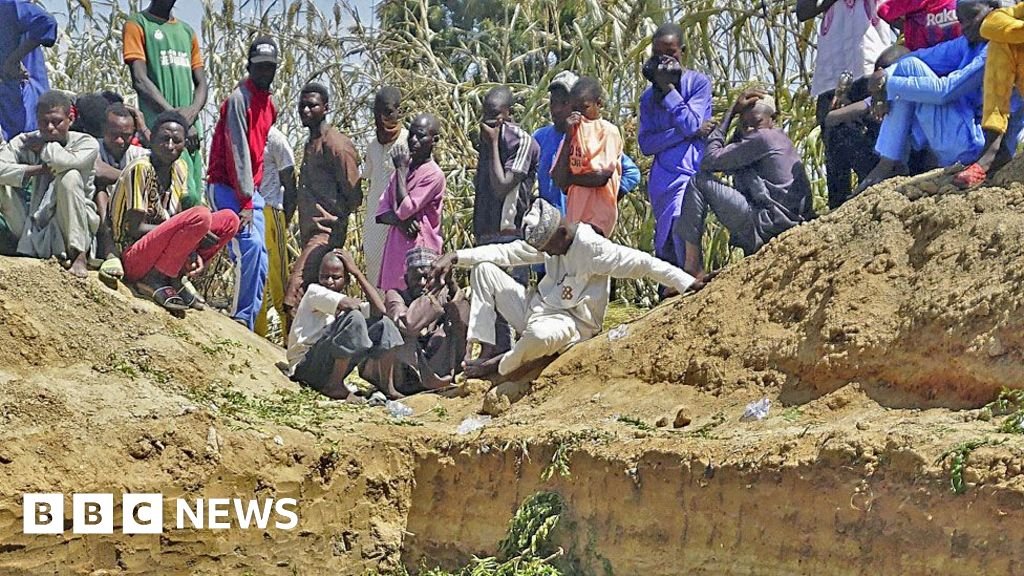However, some safety experts argue that the issue is not about a lack of policies but rather a failure to implement them.
“There is no political will to act,” Timothy Iwuagwu, president of the Institute of Safety Professionals of Nigeria, told the BBC.
He attributes many of the tanker-related accidents to factors such as poorly maintained roads, inadequately inspected vehicles and untrained drivers.
“The force of the tanker hitting the ground isn’t enough to cause an explosion. It’s the poor fabrication of these tanks by unqualified persons – that is the problem,” he said.
Overloaded tankers and ineffective safety checks at depots also played a significant role in the frequency of these accidents, he added.
But the reality on the ground is that desperate people will take risks.
Since President Bola Tinubu came to power in May 2023, his administration has scrapped fuel and electricity subsidies, leading to petrol prices rising by more than 500% and a significant spike in energy costs.
Meanwhile the naira, Nigeria’s currency, has depreciated by more than 400% against the US dollar, further worsening the economic hardships.
Inflation stands at more than 32%, and an estimated 104 million Nigerians – almost half of the population – live in poverty
The government has defended these measures, insisting they are necessary to stabilise the ailing economy.
And although the government has promised an investigation into the Jigawa explosion, history shows that prosecutions are rare – and victims or their families rarely receive compensation.
“The people left behind in Majia are feeling very sorry after this incident,” said Mr Majiya, reflecting the town’s shock and grief.
“The government has promised to help the community and the survivors. We await them,” he said.
As the nation joins them in mourning, calls are growing in volume for the government to protect its citizens from these preventable disasters.
Source link
